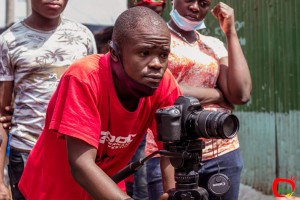
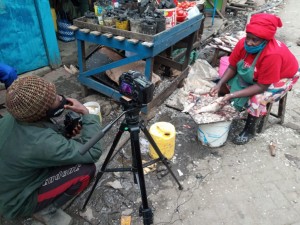
# ShujaaMtaani
Calvin, famously know as Calvo is a jovial and dedicated human rights and social justice champion who stops at nothing legal to bring untold stories to life.
In an era where information is a very powerful tool, Calvo has mastered the art of harnessing photography and videography to ensure everyone has access to information. Through his innovative online platforms including YouTube and Facebook, he goes that extra mile to tell a story, that otherwise could never be heard.
Calvo is a member of the Justice Centre Working Group- a vibrant network within the informal and low income settlements in Kenya, where he provides coverage for the community based organization’s activities and also at a personal development and documentation.
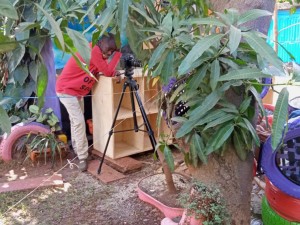
As human rights defenders sought alternative ways of doing the work of defending human rights during the onset of corona virus disease in Kenya, Calvin, an avid social media user moved towards online activity through robust content creation around participatory story telling.
With a keen eye in photo and video storytelling, Calvo incubated Hood Tv, where, with a team of young and creative HRDs, visit different residential estates and slum areas to interact with residents on emerging human rights and social justice issues as a result of covid-19.
He also uses the stories to sensitize his followers on corona virus disease and holds in-depth analysis discussion on his documentaries to debunk misunderstood human rights jargon and work to his followers.
His main focus is on advocating for transparency and accountability, especially on development projects that affect slum dwellers who have been the worst hit by covid-19 disease due to misappropriation of funds by duty bearers, lack of prioritization on the root cause of issues in slum areas, loss of livelihoods, poor sanitation, extrajudicial killings by rogue police officers and gender based violence.
So far, he has created 10 out of his target of 16 documentaries that touch on specific issues within different neighborhoods in Nairobi that seek to highlight covid-19 and its effects in communities living in-city informal settlements.
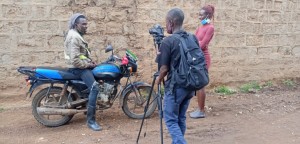
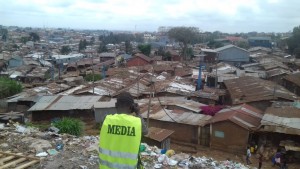
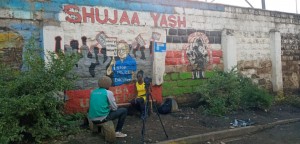
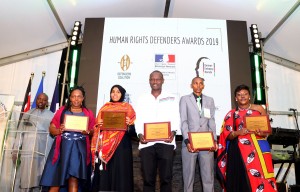
INTRODUCTION
Civic space in Kenya continues to be under pressure as a range of actions is being directed against the work of Human Rights Defenders (HRD), HRDS networks and Civil Society Organizations (CSO) in Kenya. Physical attacks, criminal and administrative actions, reprisals, legislative restrictions, negative rhetoric and limitation of human rights have undermined the constitutional and international protections available to HRDs.
It is against this backdrop that the Working Group on Human Rights Defenders in Kenya, which brings together CSOs, the UN and development partners concerned with the protection of HRDs, is organizing the fifth edition of the HRD Awards on the 27th of November 2020. The aim of the ceremony is to honor and publicly recognize the important work of HRDs and HRDs groups in Kenya, by giving out awards to those who have demonstrated courage, innovation and impact in the promotion and protection of human rights and fundamental freedoms. The awards are presented in three categories: the Munir Mazrui Lifetime achievement award, the Human Rights Defender of the year award and the upcoming Human Rights Defender of the year award.
THE OBJECTIVES
The objectives of these awards are to:
SELECTION PROCESS
The Working Group on Human Rights Defenders in Kenya develops a call for nominations, which is then widely circulated by the National Coalition of Human Rights Defenders-Kenya (NCHRD-K, also referred to as Defenders Coalition) and other partners. This call outlines the criteria for eligibility for nomination. Both individual HRDs and groups/organizations can be nominated in the three categories.
A panel comprised of missions and organizations involved in the planning of the HRD Awards then shortlists five individuals/groups per category within the set-out guidelines for shortlisting candidates.
The panel verifies the HRD’s human rights work through field visits, and interviews with the nominators, the nominees and their references.
The Judging Panel, which comprises of eminent individuals in the human rights sector, makes a final decision, from the names submitted, on the recipient of the three awards and the runner up.
Will be held on the 27th of November 2020 in the presence of CSOs, the UN, the government, selected HRDs, representatives from the international missions, and the media who will cover the event.
SELECTION CRITERIA
The following will be taken into consideration:
AWARD
Three awards will be presented to the overall winners:
The winners will receive:
To nominate your favorite HRD, Download the nomination form here
or nominate online via https://forms.gle/DujVWEsXGZPo5yg56
All nomination forms should be sent back to the Defenders Coalition via advocacy@defenderscoalition.org with a clear subject line “HRD AWARDS NOMINATION” by the 15th of August 2020, 11.59 P.M
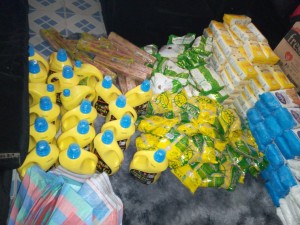
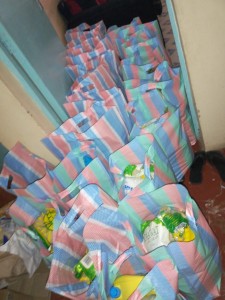
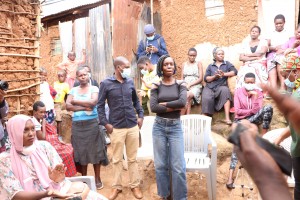
#ShujaaMtaani
EDITAR OCHIENG, FOUNDER FEMINIST FOR PEACE RIGHTS AND JUSTICE CENTRE
Editar is a feminist activist , convenor and social justice champion in Kibera, Nairobi, which is one of the biggest slums in Africa.
She has continually advocated for the realization of Women’s and Girls’ Rights as well as addressing issues around gender-based violence and its prevention before and during Covid-19 pandemic.
She has championed the inclusion of women in peace and security plans that aim to promote peace in the once crime-ridden community by pushing for the implementation of UN Resolution 1325.
With Covid-19, Editar, volunteers, friends and members of her community-based organization have been mapping out vulnerable populations within her community to prioritize them for support when food and relief stuffs are distributed.
Editar and other young women in Kibera have continued to train community members on liquid soap-making, which has become a sustainable income generating activity for poor slum dwellers. They also distribute the soap for free to the vulnerable.
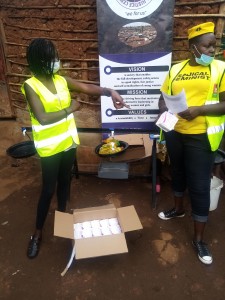
Editar also distributes sanitary ware to young girls within the community to promote access to menstrual hygiene and prevent young girls from exposure to sexual abuse including engaging in sex for money to purchase sanitary ware.
Editar has also been so creative in promoting access to education for pupils and students who no-longer attend school due to covid-19. She has made a mobile library dubbed Feminist Library, that is moved around the village for school-going children to access books to read. The library is accessible to residents of Kisumu Ndogo Village.
With other women and help of well-wishers, Editar has placed hand-washing stations in Kisumu Ndogo Village which they fill with clean water everyday to foster a hand washing culture among residents of the slum.
To promote wellness, she conducts self care sessions including dancing, with her group members. Right now as a community health volunteer, she continues with disaster management training and engaging young women to provide local solutions to local problems in Kibera.
Editar is a women LIBERATOR. She’s is a POWER house
#ShujaaMtaani
Rachael Preparing food stuff at a local warehouse for distribution on her community photo by Frederik
#ShujaaMtaani Rachael Mwikali is a leader, community organizer ,feminist and woman human rights defender from Mathare informal settlements in Nairobi County-Kenya.
With the support of young members of her social movement ,Friends, volunteers and the support of well-wishers, Rachael has consistently fed vulnerable populations within her community and within Nairobi County during the covid-19 pandemic.
Weekly, she feeds up to 600 families through donations sent to her by her friends and well-wishers who have grown fond of her human rights based humanitarian response to covid-19, mass media and on social media platforms.
Rachael is not only feeding the families. She also promotes access to Menstrual Hygine Management products to young girls and women’s in her neighbourhood by providing them sanitary towels and menstrual cups.
She also support survivors sexual and gender based violence. Throughout her work within Mathare area, Rachael ensures that she has a few masks with her that she distributes to community members fo free. The masks are supported by friends who make them or buy and give Rachael to distribute.
She has consistently sensitized her community on the coronavirus disease whenever community members visit her for assistance and support.
Her messages are those of hope and the importance of communal solidarity for psychosocial needs while facing the impacts of covid-19.
#ShujaaMtaani
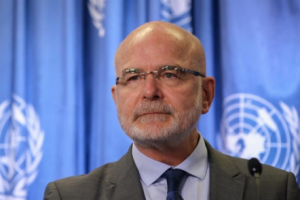
Michel Forst: My last report (and other material) as UN Special Rapporteur
Dear friends,
As you know, I have left the UN mandate on human rights defenders on 1 May 2020. I had to devote the last weeks of my mandate to finalize a number of projects that had been postponed due to the COVID19 crisis. This is now complete and I am pleased to share these latest achievements with you.
First of all, I prepared a final report, more personal than the previous ones, to reflect on these six years spent with the mandate for defenders. As this report is not officially attached to the Office of the High Commissioner for Human Rights, you will only find it on the “unofficial” website of the mandate: www.protecting-defenders.org/sites/protecting-defenders.org/files/V-EN-complet-0526.pdf
Secondly, I developed a series of videos illustrating the essential role played by defenders around the world. One general video presents the work of defenders and three other videos focus on groups of defenders at risk: women defenders, environmental defenders and defenders working in conflict and post-conflict situations. I wanted these animated videos to be as accessible as possible to defenders and the general public, so they are available in 4 languages (French, Arabic, Spanish and English) with the possibility of subtitles in the language of your choice. Please help me disseminate and share these videos!
All these videos are available on our Youtube channel: https://www.youtube.com/channel/UCpidtOxbCtw2xdEXjupPR3w?view_as=subscriber
Finally, I am happy to share with you the fruit of a collaborative work with a dozen NGOs, networks and partners to translate the UN Declaration on Human Rights Defenders into an accessible and user-friendly format. This translation is now available in more than 50 languages and dialects. Unfortunately, the posters are not yet posted on OHCHR’s website which is why I am counting on you to take hold of this tool and bring it to life as close to the field as possible!
The posters as well as all the communication materials developed over the past years are available here: : https://app.box.com/s/qbxxks6gcfi97nge9peuf2c1qvfn93pz
I would like to thank you one last time for these six wonderful years spent at your side. I am sure that we will meet again to address together the many challenges facing the human rights defenders community.
See you soon!
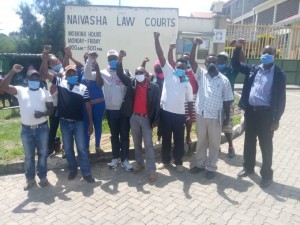
NAIROBI, 21 May 2020
POLICE BRUTALITY AGAINST KENYAN HUMAN RIGHTS ACTIVISTS ON THE RISE
The Kenya police from Naivasha in Nakuru county have arrested and seriously assaulted two Land Rights Activists who have been involved in ongoing legal battles with private developers over encroachment of public space and closing off public access corridors to Lake Naivasha.
Private developers that include Hotels and Flower farms, own huge tracts of land along the shoreline and thus have closed off access roads to the lake affecting livelihoods of poor local communities that engage in fishing and tourism.
Community members from Karagita have, through the White Eagle Development CBO and Haki Jamii Rights Centre, petitioned the County Government of Nakuru to intervene and ensure reopening of the access corridors to the lake.
On Friday May 15, 2020, Kongoni Police Station OCS supervised the brutal beating and arrest of seven members when they protested dumping of garbage and blocking of one of the lake access roads that took place in the night of 14 May 2020 despite a court order prohibiting such action.
Two of the activists were brutally assaulted and injured by police officers during the arrest before being detained at a quarantine facility to allegedly “teach them a lesson”. The other five arrested members were briefly detained at the Naivasha central police station before being arraigned in court the same day.
The activists were detained for five days at Naivasha Girls Secondary School, a public health quarantine facility, before they were taken to court in Naivasha on 20th May where they were charged with several criminal offenses including incitement to violence, resisting arrest, assaulting a police officer while resisting arrest, creating disturbance in a manner likely to cause a breach of peace among others. They denied the charges.
The court has ordered their release on bail pending hearing of the multiple criminal charges preferred against them. The Court further ordered that the first accused, who suffered injuries following police beating during the arrest to access medical attention.
The OCS Naivasha Central and OCPD refused one of the activists (Paul) to record a complaint of assault on 21st May 2020 and refused to issue him with P3 Form which is required to access treatment at a public hospital and pursue justice.
Defenders Coalition condemns the persecution of the human rights defenders by law enforcement officials. The violence meted on the two officials and other aggrieved community members during the arrest, their detainment at medical quarantine and the charges preferred fall into a pattern of punitive actions directed at human rights defenders who demand justice, speak truth to power or question police misconduct.
Defenders Coalition demand that:
Defender Coalition
Wednesday, 4th March 2020
Submission to the Senate: Situation of Judicial Executions (EJEs) and Enforced Disappearances (EDs) in Kenya. Human Rights Defenders, Journalists and Whistle-blowers Working on EJEs
The Defenders Coalition, which is the national coalition of human rights defenders in Kenya has in the last 12 years been receiving cases of threats and reprisals against HRDs in Kenya.
The HRDs investigating, reporting and calling out the perpetrators, they have been met with glaring life threats, intimidation and evictions by landlords who collude with the trigger-happy cops.
The Coalition is worried that the HRDs who help victims of EJEs and EDs do not get state protection as the victims they assist
The Defenders Coalition has been in the forefront in offering protection to the HRDS through, medical and psychosocial support, legal support and also relocation services.
However, the cases continue to increase with increased number of killings, media interviews, release of investigative journalism pieces and dissemination of reports consolidated by HRDs on Extra Judicial Executions and Enforced Disappearances.
In 2020 alone, Defenders Coalition has responded to 5 cases of HRDs who have either been physically assaulted by the cops, threatened and others intimidated through trailing and arbitrary arrests.
Our asks to the committee:
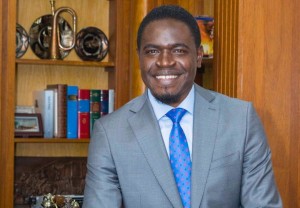
I have no doubt in my mind that Covid-19 is a devastating disease. It is a pestilence of mass decimating capacity, comparable perhaps to the Spanish Influenza. The Government’s financial ability to deal with the emergency is undisputed. There is more than enough money to deal with the virus. I, however, have profound misgivings in the Government’s commitment in containing the pandemic.
The question is capacity, commitment, accountability and public trust. Does the Government have the savoir faire and wherewithal to save us? Who or what should we truly fear? It commenced with self-isolation and moved to forced quarantine. Then came the curfew and restrictions of movement. All these were undertaken without a legal framework or in disregard of the law. Covid-19 Rules and Regulations were hurriedly drawn and gazetted in a rushed attempt to cure the illegality of the Government’s actions after commencement of court action. Parliament was not consulted and when later consulted, rubberstamped without inquiry.
Today, the Covid-19 Emergency Response Committee mandated the IG of Police to do the unthinkable. The IG is to establish a containment camp for curfew violators. Should this be challenged in Court? Will the case be belittled as populist, insensitive and ignorant? Will the Court endorse the transgression because the Government is combating an emergency whose effects we do not know? Will it say that the Government knows what is best in the circumstances?
The penalty for violating a curfew is prescribed by law. It is a fine not exceeding ten thousand shillings or to imprisonment for a term not exceeding three months, or to both. Police subjected violators to corporal punishment on the first day of the curfew. Many were maimed, several died. The Court found in favour of the LSK on this issue. It however, did not hold the IG personally liable. Who else should be responsible for police overreach if not their Commander?
The hyena told the rock, “even if you don’t answer back, I know you have heard me.” Indulge me as I speak to you about containment camps. You may listen and respond. Even if you don’t, you would have heard me. There were concentration camps in NAZI Germany. At first, every patriotic German believed the camps were lawful because they did not target the Arian race. Martin Niemoller spoke about it in the end. He said, “First they came for the Communists and I did not speak out because I was not a Communist. Then they came for the Socialists and I did not speak out because I was not a Socialist. Then they came for the trade unionists and I did not speak out because I was not a trade unionist. Then they came for the Jews and I did not speak out because I was not a Jew. Then they came for me and there was no one left to speak out for me.” Command responsibility rested culpability for the holocaust both on political and military leaders.
In 1952, Sir Evelyn Baring declared a state of emergency in Kenya to contain the Mau Mau uprising. Sir Baring closed down Nairobi. Concentration camps were set up outside Nairobi, mainly in Central Kenya. Murder, imprisonment, torture and inhuman conditions defined the enforcement of the curfew then. These atrocities are yet to be remedied.
There have been more brutalities perpetuated in the name of concentration camps. The horrors of the Hola concentration camps are well document in history. The Wagalla massacre and many others are chronicled in the Truth Justice and Reconciliation Commission Report. Will there ever be reprieve?
One cannot know where he is going unless he remembers where he has come from. On 15th March, 2020, the IG was given power to decide the rights of arrested suspects. It took the intervention of the LSK to remedy the dereliction of duty and infraction of the Constitution. Many innocent people had suffered in the hands of police by the time the decision was reversed on 15th April, 2020.
The Emergency Response Committee has no power to mandate the IG to establish a containment camp for curfew violators. How can such a preposterous and unlawful idea even be contemplated in a constitutional democracy? A while back, the Cabinet Secretary in charge of Health declared that anyone found outside during curfew hours will be deemed to have been infected with Covid-19 and quarantined. Many have been so quarantined notwithstanding the illegality of the declaration. Victims of this action may have no reprieve if the Court decision on the curfew is anything to go by.
It is high time Kenyans started questioning the propriety of some of the measures taken in containing Covid-19. Parliament and the Judiciary are reluctant to intervene. While no one knows where the river comes from or where it goes, everyone knows when the river has broken its banks. It is then that one must run to higher ground. You are on your own, headed to Covid containment camps. The river has broken its banks
30 April 2020
Nairobi, Kenya
Report on the situation of Human Rights Defenders in Kenya in the wake of COVID -19: Violence, Impunity and Retrogress to police state
Following a declaration by the World Health Organization (WHO) on March 11 2020 on Corona virus disease as global pandemic, speed and nature of its spread, the government of Kenya has put in place a raft of measures to keep her citizens safe by curbing the spread of the virus. These measures include advising citizens to stay at home, corporates to minimize crowds at places of work, banning all public and social gatherings, implementing measures as advised by WHO and the a nationwide dusk to dawn curfew between 7pm to 5 am to be observed by all citizens except for a select institutions and professions classified as essential service providers that took effect on Friday 27th March 2020. This directive, consequently, omitted the recognition of fundamental oversight and watchdog institutions who play a critical role in monitoring the implementation of such directives.
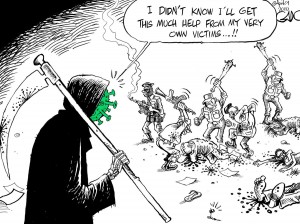
The curfew directive has been the direct cause of numerous human rights violations. Majority of these violations, as you will see below, are cases perpetuated by police officers who are on a wave of using excessive force while enforcing the presidential directive. On the first day of the curfew (27th March) innocent and unarmed home-goers were brutalized, treated with indignity, whipped, battered, violently assembled- an action that was contrary of social distancing directive- and tear gassed even before clock of curfew time.. Horrific images and videos circulated in the media as Kenyans called on the government to bring to book the perpetrators and respect human rights. This incident happened in Mombasa where 16 people were injured as per data.
On the onset of a steady increase in confirmed cases of COVID-19 in Kenya, the government further announced even stringent and stiff measures to contain the spread of the virus. President Uhuru Kenyatta announced a 21-day partial lockdown (cessation of travel) at four counties (Nairobi, Mombasa, Kwale, Kilifi and Mandera on 24th April) that had indicated infection numbers going through the roof and therefore regarded as COVID-19 hotspots.
In his address that was televised on 6th April 2020, the President warned that “We must be ready to go even further if necessary.” Movement of food supplies and cargo was, however, to continue moving in and out of the partially locked down counties through road, rail and air.
Defenders Coalition has put together a report illustrating the impact of Covid-19 on human rights defenders in Kenya.
Read full report here
Photo Credits: Daily Nation
Cartoon artwork: @iGaddo